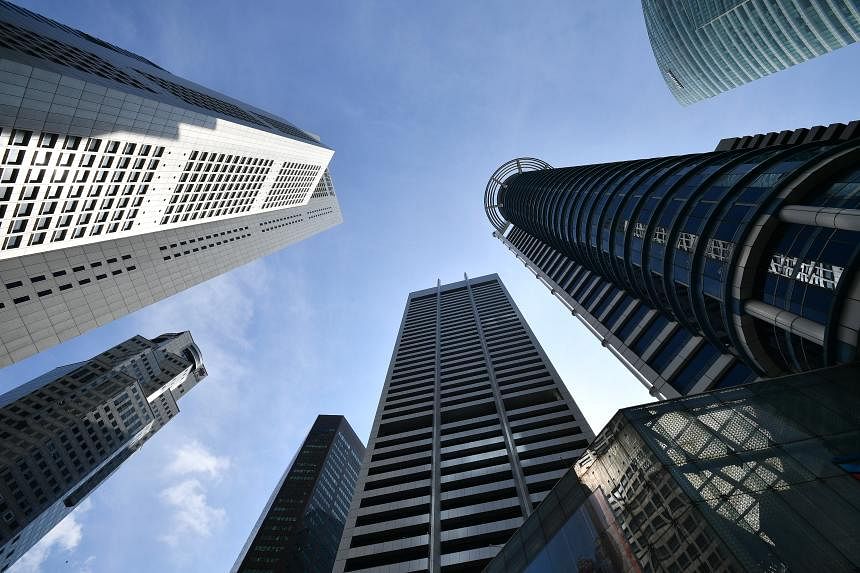SINGAPORE - EY is calling for more funding support for small and medium-sized enterprises (SMEs) to strengthen sustainability capabilities, as well as for a reassessment of Singapore’s tax incentives ahead of upcoming tax reform moves, in its Budget 2024 wish list released on Jan 3.
The professional services firm proposed a raft of measures to strengthen Singapore’s economic competitiveness, encourage sustainability, and develop enterprises and the workforce.
EY’s Singapore head of tax Soh Pui Ming said: “With the implementation of Pillar 2 of BEPS 2.0 (Base Erosion and Profit Shifting) just around the corner, an uncertain economic outlook and intensified geopolitical tensions, 2024 looks to be a bumpy year.
“More so than ever, tax measures and policies are critical enablers in supporting Singapore’s economic objectives and charting the nation’s next lap of growth.”
Strengthening tax measures
Pillar 2 of BEPS 2.0 introduces a minimum effective tax rate of 15 per cent for large multinational enterprises. Deputy Prime Minister and Finance Minister Lawrence Wong announced during Budget 2023 that this will be implemented in Singapore on or after Jan 1, 2025.
EY called on the Government to keep an “open mind and flexibility” in reassessing Singapore’s existing suite of tax incentives, noting that other jurisdictions are also undergoing tax incentive reform ahead of the landmark move.
It recommended introducing a Qualified Refundable Tax Credits scheme for businesses engaged in activities that are less capital-intensive. These include those in services-oriented industries, which may not be able to access traditional cash grants.
Next, it proposed expanding existing tax incentives, following the implementation of BEPS 2.0.
For one thing, the scope of qualifying activities under the Approved Foreign Loan (AFL) incentive should be expanded beyond capital-intensive equipment investment, said EY. The AFL incentive gives a withholding tax exemption of 0 per cent or a concessionary withholding tax rate of 5 per cent for interest payments made to non-tax residents.
The firm recommended that the withholding tax concession be extended to support companies in undertaking other “economically productive activities in Singapore”, including commodity trading, intellectual property rights (IPRs) acquisitions, research and development, as well as mergers and acquisitions activities.
Additionally, the Government could consider expanding the scope of qualifying IPRs under the Intellectual Property Development Incentive to include other intangible assets such as plant variety rights, designs and utility models. Currently, only patents and copyrights subsisting in software qualify.
Encouraging sustainability
EY also proposed a slate of measures to further encourage industries to decarbonise. More targeted funding support can be given to SMEs to invest in carbon-pricing and modelling solutions, as well as projects such as value-chain emissions management and decarbonisation, said EY tax services partner Chai Wai Fook. These measures can include a further deduction on the expenditure incurred, or co-funding, on such projects, capped at $400,000. A limited timeframe of two years of assessment can be used to ensure the effectiveness of the move, he added.
Next, to reduce business costs, EY called for a further liberalisation of the goods and services tax (GST) treatment for input tax claims on carbon credit trading-related expenses. It also proposed that enhanced tax deductions be granted to businesses that purchase carbon credits to meet their emissions targets, subject to a cap.
Additionally, the firm recommended that all distributions accrued from certain qualifying green investments made by Singapore investors overseas be exempt from corporate tax here, similar to foreign-sourced dividends.
To further encourage the early adoption of electric vehicles (EVs), EY proposed that input tax be claimable on the GST incurred for expenses related to EVs.
Other proposals
To develop Singapore’s workforce, EY’s proposed measures include increasing the cap for tax relief on course fees for personal development. The relief has been capped at $5,500 since the year of assessment 2011 for individuals undertaking courses to upskill or gain an academic, professional or vocational qualification.
EY’s Asean people advisory services – integrated mobile talent leader Panneer Selvam said: “As costs increase, it may be time to increase the cap to further encourage individuals to invest in their future by upskilling.”
To better support families amid rising costs, the firm suggested that the Government review the quantum for the Qualifying Child Relief.
The quantum has been at $4,000 per child since the year of assessment 2009. EY’s partner for people advisory services – integrated mobile talent Kerrie Chang said that adjusting this would be advantageous for families in the middle-income bracket, and can help to offset the rising expenses to education and inflation.

